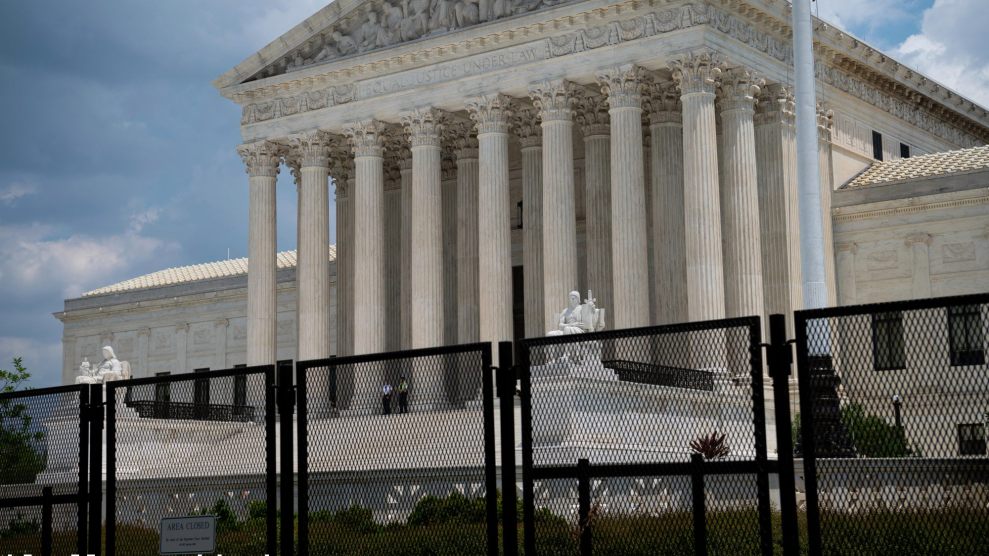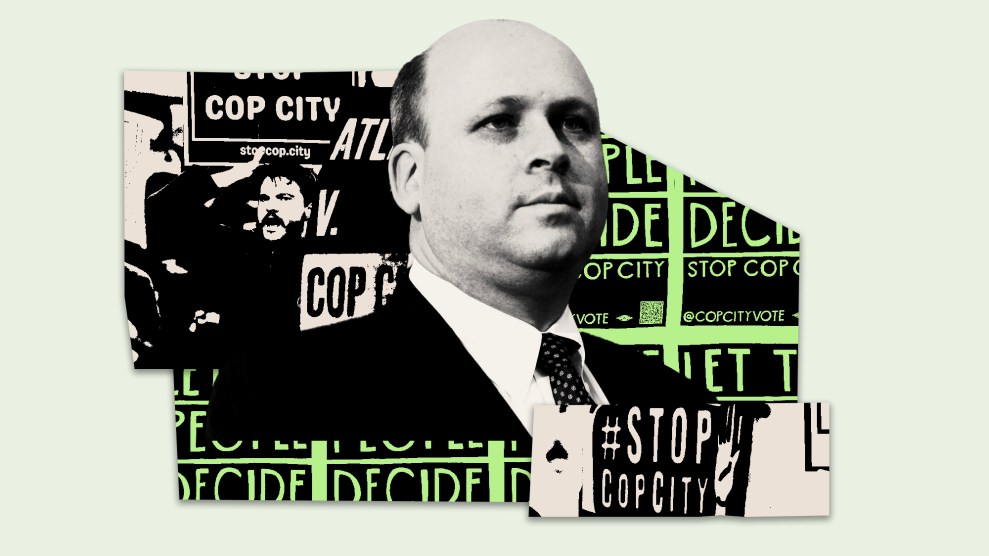
Graeme Sloan/Sipa USA via AP
Early Wednesday morning, an armed man who had threatened Brett Kavanaugh was arrested near the Supreme Court justice’s Maryland home, according to reports. A law enforcement source told the Associated Press that the suspect “was armed with a gun and a knife” and that he “arrived in a taxi” and told officers he “wanted to kill Kavanaugh.” According to sources cited by the Washington Post, the man was also carrying “burglary tools.” The Post pointed to early evidence suggesting that the man’s motives may have been political:
Two people familiar with the investigation said the initial evidence indicates that the man was angry about the leaked draft of an opinion by the Supreme Court signaling that the court is preparing to overturn Roe. v. Wade, the 49-year-old decision that guaranteed the constitutional right to have an abortion. He was also angry over a recent spate of mass shootings, these people said.
It’s important to keep in mind that these details could change as the story develops. But whatever we ultimately learn, this incident will surely become a flashpoint in any number of raging national debates: gun control, abortion, the rights of protesters, political extremism, just to name a few. A quick glance at Twitter shows that it’s already happening.
It’s not yet clear how close the suspect came to murdering Kavanaugh. I certainly don’t know what policy changes could prevent such a horrific event from occurring in the future or how to balance those measures against Americans’ First and Second Amendment rights.
But I do know this: We apparently just came unacceptably, terrifyingly close to catastrophe. The assassination of a Supreme Court justice would be a personal and national tragedy. But it would be more than that. It would be a threat to American democracy every bit as severe as the January 6 insurrection and Donald Trump’s attempts to overturn the 2020 election. It’s simply impossible to imagine how a high court torn apart by violence could function in a way that Americans accept.
I doubt we will see many people cheering on this crime. That isn’t enough, though. We can’t just condemn this and move on. Everyone, across the ideological spectrum, needs to take this completely seriously and figure out what can be done to prevent the country from plunging into a new era of political violence reminiscent of the 1960s and 1970s. The fate of our republic depends on it.














